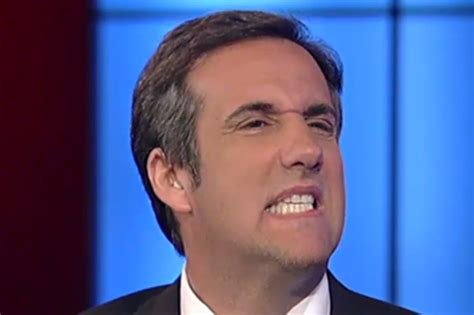An Overview of the Fox News “JV” Debate
Thursday night’s so-called JV debate offered little new insight into the candidates. Topics ranged from the American economy, foreign policy, the dominance of Donald Trump in the race and why each candidate’s vision was the best option.
Logistically it’s worth noting, with 17 candidates running, a candidate needs to only be polling at 5.9% to achieve a plurality of the vote. Though the primary process is a little more complex than this since it is not one popular vote but a series of votes with different parameters and the possibility of the size of the field changing, this is a good ballpark number to keep in mind when looking at the level of support expressed in public opinion polling.
All 7 candidates relegated to the 5 pm debate are polling under 2%, so even though they’re near the bottom, this is actually not a serious impediment to their chances.
In order to grow support in the polls, unique policy and strong leadership records need to be articulated.
But, with few exceptions, there were a lot of bromidic talking points. Part of this can be chalked up to the 1-minute response times strictly enforced by the moderators. But, both Rick Santorum and Jim Gilmore managed to present some detailed policy proposals. Santorum touted a “20/20 Perfect Vision” plan that would feature a 20% flat tax and would focus and making America the leading world manufacturing power. Though the details are new to this campaign, the emphasis is in line with Santorum’s emphasis on what he terms “blue collar conservatism.”
Gilmore presented a tax plan that would reduce income tax into three brackets- 10%, 15% and 20%, though he failed to mention what income levels would define who pays what rates. He also stated he would institute a 15% flat tax for business and would eliminate the death tax.
Other strong performers included Carly Fiorina who rightly pointed out when asked why she should be considered a viable candidate with her lackluster support in polls that historically the frontrunner in this point of the campaign is not the ultimate winner of the nomination. She also responded well to questions about Donald Trump, stating that the mogul’s appeal was rooted in an ability to tap into the anger felt by average Americans at feckless politicians. However, she failed to ultimately bring this point back to her experience as the CEO of Hewlett-Packard.
Weaker moments included Bobby Jindal dodging a question about why Ohio governor John Kasich, who took federal money for Medicare, was wrong in doing so. Rick Perry also had a weak performance, tauting Texas’s growth record- the 12th largest economy in the nation which added 1.5 million jobs between 2007 and 2014. Though the numbers are impressive, especially since this was in the midst of a serious economic contraction, Perry’s ability to claim credit for this growth is questionable since its success is owed to a rolling back of state oversight and regulation.
George Pataki stumbled over the issue of abortion. A devout Catholic, he stated he believes life begins at conception, but then stated that Row v. Wade should not be repealed because it has been law for so long. He then further contradicted himself by advocating for the defunding of Planned Parenthood, calling their actions appalling, and stated life should be protected after 20-weeks, when medical science concludes it is viable outside the womb.
Lindsay Graham, whose slurred speech and shifty eyes raised the question, however conspiratorial, that he had been drinking, managed to spin nearly every question put to him into one about the Middle East, falling back on the hawkish, pro-surveillance position that has defined his Senatorial career. He babbled through many questions, repeating an earlier joke about being fluent in “Clinton speak” and making such incoherent statements as “I’ll show you the meaning of flat broke.”
The most startling moment of the night perhaps came from Jim Gilmore who called for a Middle Eastern United Nations to stop ISIS “before it becomes an actual state.
The night’s big winner? For policy, no one. Though Gilmore and Santorum presented the outlines of concrete plans on which they can run, there’s nothing really new there. For coherence and spirit, Carly Fiorina has to be declared the most outstanding. She did not shy away from labelling herself as a conservative, demonstrated an understanding of the difference between government and the private sector, which so many who consider themselves right wing ultimately do not understand, and then was able to tout her record. As has become her signature line of attack, she was also relentless in going after Hillary Clinton. Rick Santorum, also well-spoken and passionate, deserves an honorable mention. Unfortunately, Santorum’s 2012 bid is being touted as proof that he can’t win, but the appeal that made him the runner-up in that race was definitely on full display.
Outstanding Moments for Each Candidate:
Rick Perry: When asked what his response would be to a child whose father was separated by deportation, Perry rejected the premise, saying “For 30 years America has been baited with that argument.”
Rick Santorum: Asked the same question as was put to Perry, Santorum also strongly rejected the narrative, saying “We’re a country of laws. America is great because compassion is in our laws.”
Bobby Jindal: Asked about dealing with ISIS, Jindal said the fight cannot be won without “moral honesty and clarity.”
Carly Fiorina: Asked about how to rectify Middle East allies and their tendency to funnel money to terrorist groups, she said on her first day she would call Benjamin Netanyahu and reaffirm support of Israel and then would call Iran and, “unless the given access to nuke sights, make it hard to move money globally.”
Jim Gilmore: Asked what his first executive order would be, he replied the issue is not what should be done, but “what shouldn’t exist,” in reference to President Obama’s actions, particularly on illegal immigration.
George Pataki: Asked about entitlement reform, Pataki said the problem wasn’t the culture but that “good people who want to become part of American dream are trapped in dependency” by the greater benefits of staying on welfare.
Lindsay Graham: When asked about foreign policy, Graham stated that more ground troops were needed in Iraq and a regional coalition should be built to move into Syria.



